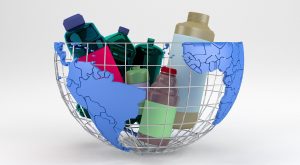The COVID-19 pandemic has had a strong economic and social impact. That is why revitalization, job creation and poverty reduction are top priorities for Governments around the world. The health crisis has also triggered the use of single-use products, such as masks or gloves, and has placed plastic as an element of protection against the virus. In this sense, government investment in zero waste recycling systems could be presented as an opportunity for economic revival and social justice, according to a report by the Global Alliance for Alternatives to Incineration (GAIA) based on research in countries such as South Africa, Brazil, India and China.
The conclusion of the study is clear: allocating funds for the full inclusion and development of the potential of grassroots waste pickers helps reduce poverty and initiate the transition to zero waste systems. Therefore, it would not only help reduce waste generation and mitigate unemployment, but it would also create greater social and environmental welfare.
Base recyclers, the cornerstone of recycling
It is estimated that between 12.6 and 56 million people work in the informal recycling sector in the above countries. For this reason, waste pickers have become the cornerstone of recycling in the cities mentioned. Their inclusion and that of the zero-waste systems they promote would result in significant savings in waste management, improved environmental performance by extending the lifespan of disposal sites and reducing greenhouse gas emissions, and ultimately, a powerful foundation on which governments can transition to a zero-waste future.
Other topics of interest: The circularity of the global economy must be multiplied by two to conserve a habitable planet
Statistics show this reality:
- In Brazil, the 600 cooperatives organized in the Movimento Nacional dos Catadores de Materiais Recicláveis (MNCR) collect 90% of all recycled materials in the country.
- In South Africa, it is estimated that recyclers recover between 80% and 90% of packaging and post-consumer paper.
- In India, waste pickers are estimated to collect 54% of recycled glass, between 34 and 45% of recycled plastic and between 28% and 50% of all recycled cardboard and mixed paper in the country.
Zero waste systems have strong potential for job creation
Furthermore, the potential to create jobs is significant. According to the report, inclusive waste management systems create an average of 321 jobs for every 10,000 tons of recyclable materials per year. For example, in Peñalolén, Chile, 555 jobs are created for every 10,000 tons per year and in Bengaluru, India, 304 jobs.
Other topics of interest: Why are universal objectives on circular economy policy needed?







